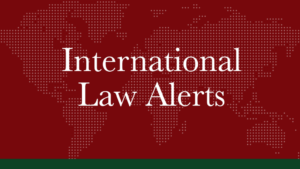
France’s Autorité de Sûreté Nucléaire (ASN – Nuclear Safety Authority) ruled on 23 February on the conditions for the continued operation of EDF’s 900MWe reactors beyond their fourth periodic review. The ruling effectively approves a 10-year life extension for the plants, which were mostly built in the 1980s, giving them an operating life of 50 years.
Japan’s Federation of Electric Power Companies (FEPC) on 26 February reaffirmed the plutonium utilisation plan it announced in December, subject to operation of the Rokkasho reprocessing plant and mox fuel plant.
Tepco, the operator of Japan’s wrecked Fukushima atomic plant, said it had successfully removed spent uranium fuel from a damaged reactor building in a key step in its cleanup of the site after a nuclear disaster a decade ago.
Women account for less than 30% of the world’s scientists and researchers and this percentage is even lower in hard sciences, such as nuclear physics and chemistry.
At the beginning of the new millennium, amid growing awareness of the link between energy-related greenhouse gas emissions and climate change, the notion of a ‘nuclear renaissance’ became popular.
Several countries from Asia and Europe to North America are planning to use nuclear energy to facilitate the shift to low carbon power, heat and hydrogen and achieve net zero emissions by 2050, according to speakers at an event hosted jointly by the IAEA and the International Energy Agency (IEA) of the Organisation for Economic Co-operation and Development (OECD).
A Memorandum of Understanding (MoU) has been signed today between World Nuclear Association and the ASEAN Centre for Energy at a virtual ceremony.
With nuclear energy increasingly recognized as vital to supporting sustainable development and climate change mitigation, nations from Africa to Asia are eyeing its use
Reacting to the findings of the European Commission’s Joint Research Centre’s (“JRC”) scientific assessment [1] on whether nuclear energy meets the “do no significant harm” criterion of the proposed Sustainable Finance Taxonomy, Dr Sama Bilbao y León, Director General of World Nuclear Association, said:
“The JRC report is clear in its conclusions. There are no scientific arguments supporting an exclusion of nuclear energy from the Sustainable Finance Taxonomy.”
IAEA Director General Rafael Mariano Grossi said countries around the world are looking at using nuclear power for effective decarbonization as “the clock is ticking” on climate change, while emphasizing that such efforts require international collaboration and partnerships to succeed.
